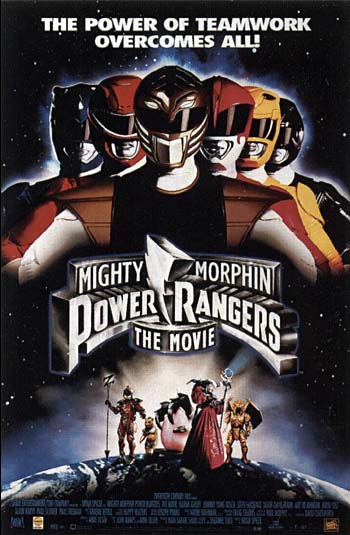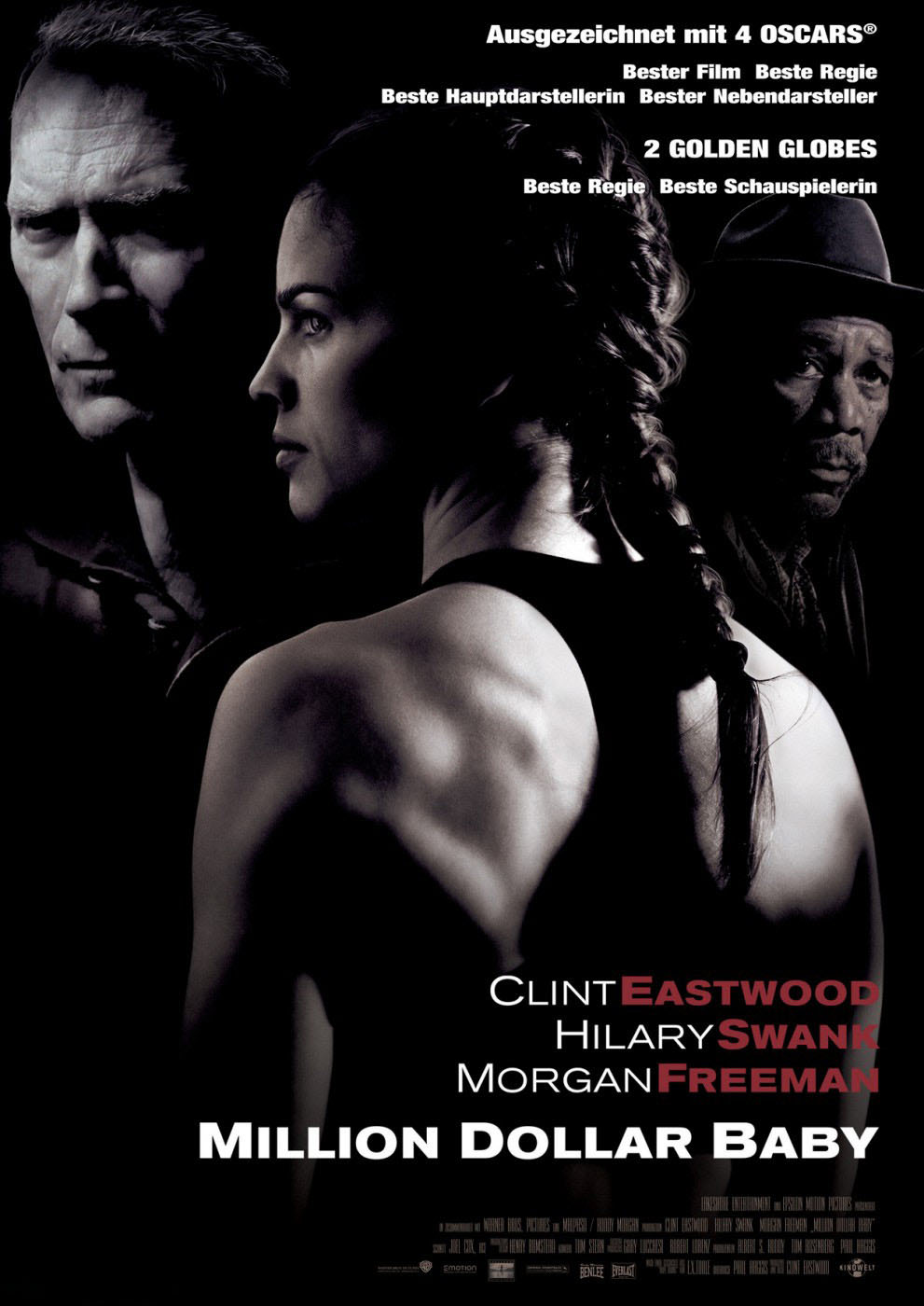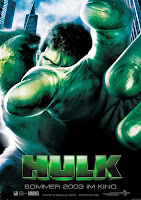For the finale of “Morgan Freeman month,” I thought I would look at another
film that Morgan Freeman starred in and was directed by Clint Eastwood. This
film is the 2009 rugby film about Nelson Mandela, “Invictus.” Now I had never
heard of this film before I went to see it in the theaters with my brother and
cousin. I had not seen any trailers or reviews for this film, but my brother
had told me about it, and I went and saw it with him. After watching it, I
really liked this movie a lot, and I consider this another one of my favorite
sports films. Quite possibly, it could be my absolute favorite sports
film. Yes, the film's title is after the famous poem by William Ernest
Henley.
It should probably come as no surprise that Morgan Freeman is portraying Nelson Mandela. He had already done God in “Bruce Almighty,” which I will get to eventually, so if he could pull off playing God, then Mandela shouldn’t be that big of a problem. Ebert noted, “Freeman has been linked to one biopic of Nelson Mandela or another for at least 10 years.” How unusual that the only one to be made focuses on the South African rugby team. The posters for this movie show Matt Damon in the foreground, with Freeman behind him in shadowy dignity. Ebert said in his review, “I can imagine the marketing meetings during which it was lamented that few Americans care much about Mandela and that Matt Damon appeals to a younger demographic.”
Ebert also said, “Screw 'em, is what I would have contributed.” Also, Mandela’s achievement is one of the moments that everyone should be familiar with from recent history. He was imprisoned for 24 years and broke rocks, and after his release, he went back to being the leader of his nation. When the white South African’s forgave him, which was the guiding light that shined upon the Truth and Reconciliation Commissions, one of a selected examples of a historical person who “really” had much to forgive, and forgave it. Don’t’ forget that both black and white mourned, and reasons to forgive, where in many cases they faced the actual killings of loved ones.
Would it really be that big of a deal that the underdog Springbok team, an all white team except for one, won the World Cup in rugby the first year into Mandela’s rule? Ebert mentioned, “I understand that in a nation where all the races are unusually obsessed by sport, the World Cup was an electrifying moment when the pariah state stood redeemed before the world -- even if soccer is the black man's game there, and rugby is the white's.” Similarly, the Beijing Olympics were important to China.
Clint Eastwood, as Ebert put it, “I believe, understood all of these things and also sought to make a film he believed he could make, in an area where he felt a visceral connection.” He has now gotten to the point in his career where he doesn’t need any interest in making a film only for money. Eastwood might have read all of the other screenplays that people made for previous Mandela’s projects. One thing is for sure: none of them got made. It was a universal decision that Morgan Freeman would be the right actor, but the story, according to Roger Ebert, “financing and deal never came together.” I would assume that Eastwood made a film that did get made. Also, Morgan Freeman (much like with Joe Clark) had met Mandela and they got along just great.
This is a great film. This film has moments where its emotions are very powerful, like when the black and white members of Mandela’s security (hard-line ANC activists and Afrikaner cops) agree to serve together with unbearable difficulty. This shows that the effects of segregation are still very strong. Another moment is when Matt Damon’s (another great actor, who you might remember as Jason Bourne) character, the team captain of the rugby team, Francois Pienaar, is shown in the exact same cell where Mandela was in on Robben Island. Ebert mentioned, “My wife, Chaz, and I were taken to the island early one morning by Ahmed Kathrada, one of Mandela's fellow prisoners, and yes, the movie shows his very cell, with the thin blankets on the floor. You regard that cell and you think, here a great man waited in faith for his rendezvous with history.”
Now the World Cup was a famous victory. The Springboks rugby team had their match with a New Zealand team that won against every single one of their opponents. They played against Japan, and they won by around 90 points, which is a lot in rugby. South Africa won in overtime. South African national teams have been called the Springboks since, as Ebert said, “time immemorial,” (New Zealand is called All Blacks) which are the national logo, and are on every tail of every South African Airlines airplane. Ebert asked, “Would Mandela change the name to one less associated with the apartheid regime? He would not. Join me in a thought experiment. An African American is elected mayor of Boston. He is accepted, grudgingly in some circles. How would it go over if he changed the name of the Red Sox?”
Morgan Freeman does a great job of playing Mandela, who is basically on the same level as Gandhi (he led his first campaign in Durban, South Africa). Freeman shows Mandela as friendly, confident, calming – over what was, as Ebert described, “Was clearly a core of tempered steel.” The focus is on the early years when he was in office. Ebert mentioned, “I believe there may be one scene with a woman representing Winnie Mandela, but the dialogue is vague.” Damon also is amazing as the captain, Francois Pienaar, a child of racist parents, who changes after he has came face to face with “the greatest man I’ve ever met.” Eastwood, who is as high of a director as he was an actor, puts every formula together to make this film work, and has his fans loving Mandela, proud of Francois, and cheering for the Springboks to win. It’s a great, entertaining picture, and you should all see it. Ebert ended his review by saying, “Not, as I said, the Mandela biopic I would have expected.” See the film if you haven’t because I cannot do it justice with this review.
Thanks for joining in with me on “Morgan Freeman month.” I hope you all enjoyed my reviews as much as I have making them. Now I know there are other Morgan Freeman films out there that I hadn't reviewed, but keep in mind that these are all the films that "I" have seen, minus one or two that I didn't review in this month. But don't worry, their time will come soon. Stay tuned for more of my reviews coming at you.
It should probably come as no surprise that Morgan Freeman is portraying Nelson Mandela. He had already done God in “Bruce Almighty,” which I will get to eventually, so if he could pull off playing God, then Mandela shouldn’t be that big of a problem. Ebert noted, “Freeman has been linked to one biopic of Nelson Mandela or another for at least 10 years.” How unusual that the only one to be made focuses on the South African rugby team. The posters for this movie show Matt Damon in the foreground, with Freeman behind him in shadowy dignity. Ebert said in his review, “I can imagine the marketing meetings during which it was lamented that few Americans care much about Mandela and that Matt Damon appeals to a younger demographic.”
Ebert also said, “Screw 'em, is what I would have contributed.” Also, Mandela’s achievement is one of the moments that everyone should be familiar with from recent history. He was imprisoned for 24 years and broke rocks, and after his release, he went back to being the leader of his nation. When the white South African’s forgave him, which was the guiding light that shined upon the Truth and Reconciliation Commissions, one of a selected examples of a historical person who “really” had much to forgive, and forgave it. Don’t’ forget that both black and white mourned, and reasons to forgive, where in many cases they faced the actual killings of loved ones.
Would it really be that big of a deal that the underdog Springbok team, an all white team except for one, won the World Cup in rugby the first year into Mandela’s rule? Ebert mentioned, “I understand that in a nation where all the races are unusually obsessed by sport, the World Cup was an electrifying moment when the pariah state stood redeemed before the world -- even if soccer is the black man's game there, and rugby is the white's.” Similarly, the Beijing Olympics were important to China.
Clint Eastwood, as Ebert put it, “I believe, understood all of these things and also sought to make a film he believed he could make, in an area where he felt a visceral connection.” He has now gotten to the point in his career where he doesn’t need any interest in making a film only for money. Eastwood might have read all of the other screenplays that people made for previous Mandela’s projects. One thing is for sure: none of them got made. It was a universal decision that Morgan Freeman would be the right actor, but the story, according to Roger Ebert, “financing and deal never came together.” I would assume that Eastwood made a film that did get made. Also, Morgan Freeman (much like with Joe Clark) had met Mandela and they got along just great.
This is a great film. This film has moments where its emotions are very powerful, like when the black and white members of Mandela’s security (hard-line ANC activists and Afrikaner cops) agree to serve together with unbearable difficulty. This shows that the effects of segregation are still very strong. Another moment is when Matt Damon’s (another great actor, who you might remember as Jason Bourne) character, the team captain of the rugby team, Francois Pienaar, is shown in the exact same cell where Mandela was in on Robben Island. Ebert mentioned, “My wife, Chaz, and I were taken to the island early one morning by Ahmed Kathrada, one of Mandela's fellow prisoners, and yes, the movie shows his very cell, with the thin blankets on the floor. You regard that cell and you think, here a great man waited in faith for his rendezvous with history.”
Now the World Cup was a famous victory. The Springboks rugby team had their match with a New Zealand team that won against every single one of their opponents. They played against Japan, and they won by around 90 points, which is a lot in rugby. South Africa won in overtime. South African national teams have been called the Springboks since, as Ebert said, “time immemorial,” (New Zealand is called All Blacks) which are the national logo, and are on every tail of every South African Airlines airplane. Ebert asked, “Would Mandela change the name to one less associated with the apartheid regime? He would not. Join me in a thought experiment. An African American is elected mayor of Boston. He is accepted, grudgingly in some circles. How would it go over if he changed the name of the Red Sox?”
Morgan Freeman does a great job of playing Mandela, who is basically on the same level as Gandhi (he led his first campaign in Durban, South Africa). Freeman shows Mandela as friendly, confident, calming – over what was, as Ebert described, “Was clearly a core of tempered steel.” The focus is on the early years when he was in office. Ebert mentioned, “I believe there may be one scene with a woman representing Winnie Mandela, but the dialogue is vague.” Damon also is amazing as the captain, Francois Pienaar, a child of racist parents, who changes after he has came face to face with “the greatest man I’ve ever met.” Eastwood, who is as high of a director as he was an actor, puts every formula together to make this film work, and has his fans loving Mandela, proud of Francois, and cheering for the Springboks to win. It’s a great, entertaining picture, and you should all see it. Ebert ended his review by saying, “Not, as I said, the Mandela biopic I would have expected.” See the film if you haven’t because I cannot do it justice with this review.
Thanks for joining in with me on “Morgan Freeman month.” I hope you all enjoyed my reviews as much as I have making them. Now I know there are other Morgan Freeman films out there that I hadn't reviewed, but keep in mind that these are all the films that "I" have seen, minus one or two that I didn't review in this month. But don't worry, their time will come soon. Stay tuned for more of my reviews coming at you.








